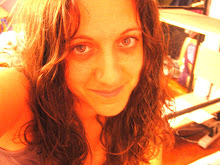
I think we've all known some bad spellers in our lives. Perhaps you are a bad speller yourself. In English, the spelling rules all willy-nilly as they are, I believe we have a certain amount of leeway that is acceptable as far as spelling slip-ups are concerned. It's not our fault! Truthfully, I admit it's a hard freaking language to master, even when it's your own. (By the way, let me know how good of a speller you are in the comments section below.)
These mistakes, in my opinion, can be chalked up greatly to the variation of letters and letter combinations that can stand in for one sound or to the letters themselves that can sometimes represent multiple sounds (just watch this I Love Lucy clip to see what I mean).
For a moment, I'd like to draw a parallel between sounds and colors. Once, I was in a linguistics class with a girl who did a report on a language (I remember it being related to Dutch) that did not have a word to distinguish between green and blue. Namely, they were considered variations of the same color. While this seems odd to us, it shouldn't be too hard to see that the names we give colors are far from black-and-white (pardon the pun). What we consider "red" has a very broad range. For each person, there must be a varying range of colors that would classify as "red."
All you have to do is go to any paint store and listen in on a conversation. You will quickly gather how up-for-interpretation color really is:
"I like that red over there."
"That one looks orange to me."
"Well, it's not red-red. It's more like an orange-red. But it's still red."
"Really? I see the red in it, but I still think it looks closer to being orange."
The same is true for sounds. Let me elaborate. Consider the English letter "s." In some cases, the letter has a soft sound, as it does at the beginning of the words "soft" and "sound." In other cases, the letter has a hard "z" sound, as it does at the end of the words "as" and "does." And, in many words, the letter "s" can take on two personas all together, as in the word "cases" and "personas" (first "s" has a soft sound, second "s" has a "z" sound). In any case, both sound variations are represented by the same letter. That leads to native English speakers occasionally arguing about how to pronounce or spell uncommon words. Again, I insist that it's not our fault that so many of us are awful spellers. It's our crazy language.
Well, the same stuff has come to haunt me with my Korean studies. In Korean there are letters that allow for certain acceptable variations in pronunciation that are different from the acceptable variations in English. This has been difficult to adjust to. Let me illustrate...
Hangul Spelling: ㅁ
Romanized Spelling: m
Variations in Sound: In the middle of words, ㅁ sounds like "m," but at the beginning of words spoken at regular conversation speed, this ㅁ sounds more like a "b." The word "sorry" that is supposedly pronounced "mian-he" sounds a lot like "bian-he."
Another example...
Hangul Spelling: ㄴ
Romanized Spelling: n
Variations in Sound: In the middle of words, ㄴ sounds like "n," but at the beginning of words, ㄴ sounds more like a "d." The word "yes" which is "ne" often sounds like "de."
This happens A LOT... it happens in Korean that the following sounds are variations of each other and are represented by the same character:
ㅁ = "m" or "b"
ㄴ = "n" or "d"
ㄱ = "k" or "g"
ㄷ = "t" or "d"
ㅂ = "p" or "b"
ㅈ = "j" or "ch"
ㄹ = "l" or "r"
The thing is... THEY don't hear it. Native Korean speakers, that is. When I protest and say that "mian-he" sounds like "bian-he," they don't hear what I hear. Therefore, I have had some low spelling self-esteem with my new foreign language. Despite the fact that the spelling system is faithfully true to the phonetics of the spoken language, I have a difficult time knowing which silly little characters to use after simply hearing a word. Sigh. Practice, I suppose will iron this out.
As a teacher, all I can do is tell your students to keep reading and learning from mistakes. And use spellcheck for goodness sake! Your welcome.*
How good of a speller are YOU?!
(*Bonus points if you noticed that "your welcome" should be "you're welcome.")

I am a terrible speller! I'm so thankful for the (sometimes annoying) red squiggle that reminds me of this daily. Sometimes I am just happy to get close enough that the dictionary is able to figure out which word I was trying to type. And btw, not that it is much of an accomplishment, but you can definitely spell better than me in Korean (oh, and also in French, Spanish, and of course English).
ReplyDelete